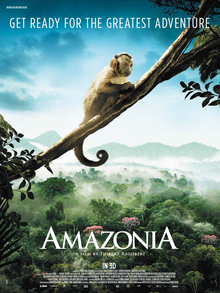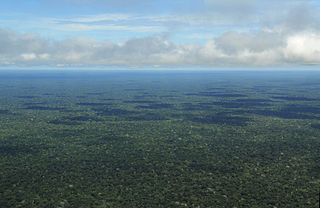
The Amazon rainforest, also called Amazon jungle or Amazonia, is a moist broadleaf tropical rainforest in the Amazon biome that covers most of the Amazon basin of South America. This basin encompasses 7,000,000 km2 (2,700,000 sq mi), of which 5,500,000 km2 (2,100,000 sq mi) are covered by the rainforest. This region includes territory belonging to nine nations and 3,344 formally acknowledged indigenous territories.

The Brazil nut is a South American tree in the family Lecythidaceae, and it is also the name of the tree's commercially harvested edible seeds. It is one of the largest and longest-lived trees in the Amazon rainforest. The fruit and its nutshell – containing the edible Brazil nut – are relatively large, possibly weighing as much as 2 kg (4.4 lb) in total weight. As food, Brazil nuts are notable for diverse content of micronutrients, especially a high amount of selenium. The wood of the Brazil nut tree is prized for its quality in carpentry, flooring, and heavy construction.

Belém often called Belém of Pará, is a Brazilian city, capital and largest city of the state of Pará in the country's north. It is the gateway to the Amazon River with a busy port, airport, and bus/coach station. Belém lies approximately 100 km upriver from the Atlantic Ocean, on the Pará River, which is part of the greater Amazon River system, separated from the larger part of the Amazon delta by Ilha de Marajó. With an estimated population of 1,499,641 people — or 2,491,052, considering its metropolitan area — it is the 11th most populous city in Brazil, as well as the 16th by economic relevance. It is the second largest in the North Region, second only to Manaus, in the state of Amazonas.
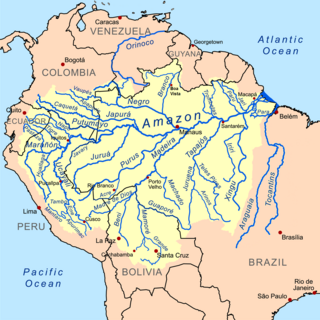
The Amazon basin is the part of South America drained by the Amazon River and its tributaries. The Amazon drainage basin covers an area of about 7,000,000 km2 (2,700,000 sq mi), or about 35.5 percent of the South American continent. It is located in the countries of Bolivia, Brazil, Colombia, Ecuador, Guyana, Peru, Suriname, and Venezuela, as well as the territory of French Guiana.

Manaus is the capital and largest city of the Brazilian state of Amazonas. It is the seventh-largest city in Brazil, with an estimated 2020 population of 2,219,580 distributed over a land area of about 11,401 km2 (4,402 sq mi). Located at the east centre of the state, the city is the centre of the Manaus metropolitan area and the largest metropolitan area in the North Region of Brazil by urban landmass. It is situated near the confluence of the Negro and Amazon rivers. It is one of the two cities in the Amazon Rainforest with a population of over 1 million people, alongside Belém.

Amazônia Legal, also known as Brazil's Legal Amazon (BLA), is the largest socio-geographic division in Brazil, containing all nine states in the Amazon basin. The government designated this region in 1948 based on its studies on how to plan the economic and social development of the Amazon region.
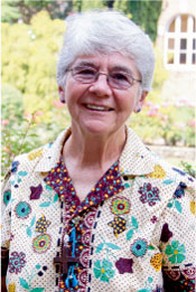
Dorothy Mae Stang was an American-born Brazilian member of the Congregation of the Sisters of Notre Dame de Namur. She was murdered in Anapu, a city in the state of Pará, in the Amazon Basin of Brazil. Stang had been outspoken in her efforts on behalf of the poor and the environment and had previously received death threats from loggers and landowners.

Parintins is a municipality in the far east of the Amazonas state of Brazil. It is part of a microregion also named Parintins. The population for the entire municipality was 115,363 and its area is 5,952 km2. The city is located on Tupinambarana island in the Amazon River. Parintins is known for the Parintins Folklore Festival, a popular festival held there each June and depicting Boi-Bumbá. It was also the site of an experimental deployment of WiMAX, sponsored by Intel, in late 2006.

The 63rd annual Venice International Film Festival, held in Venice, Italy, from 30 August to 9 September 2006.
Amazonian Jews are the Jews of the Amazon basin, mainly descendants of Moroccan Jews who migrated to northern Brazil and Peru in the 19th and early 20th centuries. The migrants were attracted to the growing trade in the Amazon region, especially during the rubber boom, as well as to the newly established religious tolerance. They settled in localities along the Amazon River, such as Belém, Cametá, Santarém, Óbidos, Parintins, Itacoatiara and Manaus in Brazil, some venturing as far as Iquitos in Peru.

The 65th annual Venice International Film Festival, held in Venice, Italy, was opened on 27 August 2008 by Burn After Reading, and closed on 6 September 2008. International competition jury, led by Wim Wenders, awarded Golden Lion to The Wrestler, directed by Darren Aronofsky.
Lúcio Flávio de Faria Pinto is a journalist who lives in Belém, Brazil. Formerly an employee of O Liberal, Brazil's largest media company, he later became the publisher and editor of the independent newsletter Jornal Pessoal. In more than 42 years of reporting, Pinto has reported on a number of sensitive or dangerous topics, including drug trafficking, deforestation by ranchers and loggers, and military, political, and corporate corruption. His reporting has led him to be the target of an assault, death threats, and 33 lawsuits.

Christiane Maria dos Santos Torloni is a Brazilian actress.

The Amazônia-1 or SSR-1, is the first Earth observation satellite developed by Brazil, helped by Argentina's INVAP, who provided the main computer, attitude controls and sensors, and the training of Brazilian engineers, and launched at 04:54:00 UTC on 28 February 2021.

The 69th annual Venice International Film Festival, organized by Venice Biennale, took place at Venice Lido from 29 August to 8 September 2012. The festival opened with the Indian director Mira Nair's The Reluctant Fundamentalist, and closed with the Out of Competition film The Man Who Laughs, directed by Jean-Pierre Ameris. Terrence Malick's film To the Wonder was met with both boos and cheers from critics at its premiere.

The 70th annual Venice International Film Festival took place in Venice, Italy from 28 August to 7 September 2013. American film director William Friedkin was presented with a lifetime achievement award. Italian film director Bernardo Bertolucci was the President of the Jury. He was previously the President of the Jury at the 40th edition in 1983. Gravity, directed by Alfonso Cuarón, was the opening film of the festival. Italian actress Eva Riccobono hosted the opening and closing nights of the festival.

Home from Home is a 2013 German drama film directed by Edgar Reitz. It was screened out of competition at the 70th Venice International Film Festival. It is shot in black and white, but there are some colour sequences. It is a prequel to the Heimat film series and concerns the Simon family living in the fictional Hunsrück village of Schabbach from 1840–1844.
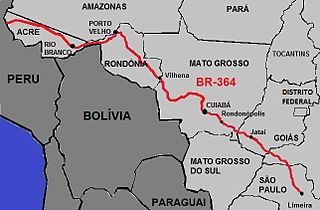
BR-364 is an inter-state highway in Brazil connecting the southeast state of São Paulo to the western state of Acre. The highway was opened in the 1960s and paved in the 1980s. It has brought economic development and population growth in the Amazon basin states of Rondônia and Acre. It is also important for the flow of agricultural and livestock production in the states of Rondônia, Mato Grosso and Goiás, for Brazilian domestic consumption and for export, predominately by Port of Santos.
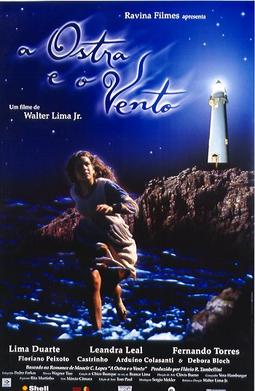
The Oyster and the Wind is a 1997 Brazilian drama film directed by Walter Lima Jr., based on the book by Moacir C. Lopes. It premiered at the 54th edition of the Venice Film Festival, where it competed in the main competition.
Tainá: An Adventure in the Amazon is a 2000 Brazilian adventure film directed by Tânia Lamarca and Sérgio Bloch.
